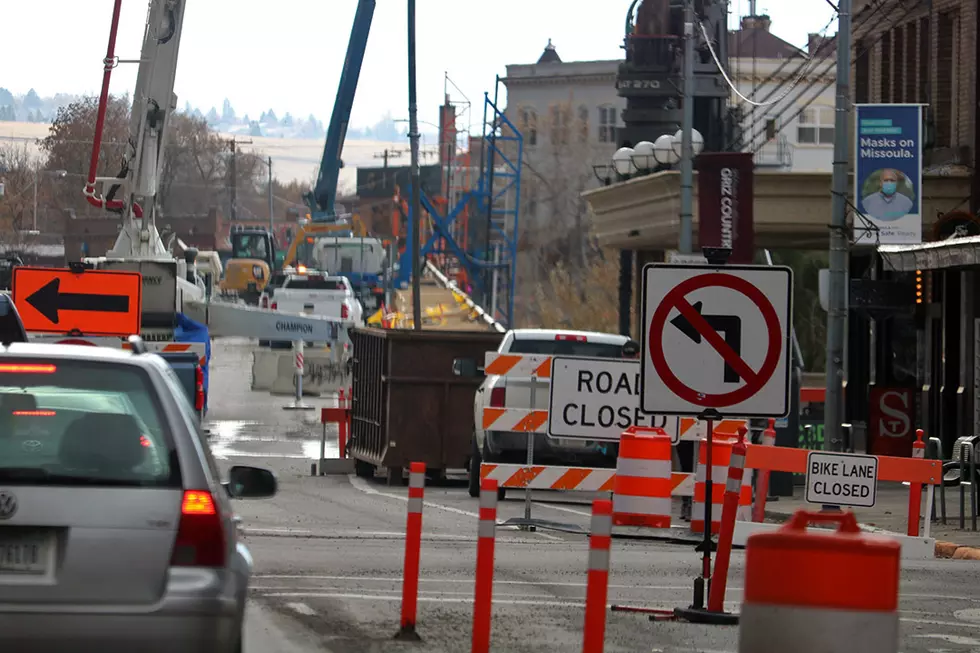
In counter-offer to Biden, GOP opts for $928B for U.S. infrastructure
WASHINGTON (CN) — Republicans presented their latest counteroffer to President Joe Biden’s $1.7 trillion vision for bridges, broadband and beyond as the country heads into Memorial Day weekend, offering $928 billion over eight years to reinvigorate the nation’s aging infrastructure.
All told, the proposal from the GOP stakes $506 billion for major roads and bridges projects, pours $98 billion into the nation’s public transit system and marks $72 billion just for water infrastructure. There is also funding for airports — $56 billion is now proposed — and a considerable $65 billion is slated to improve the nation’s broadband infrastructure if the White House were to accept the GOP’s offer.
Billions more for things like national safety provisions and industry financing for various infrastructure projects are also built into the Republicans’ package.
The nearly $1 trillion offer is a walk up from the $568 billion Republicans first proposed in April when the White House had set the table for negotiations with a staggering $2.25 trillion opening offer. After weeks of meetings with lawmakers at the White House on both sides of the aisle, Biden lowered the price tag to $1.7 trillion, ultimately downshifting the administration’s requests for manufacturing, technology and innovation investments by about $500 billion.
But those funds didn’t vanish — that roughly $500 billion to boost the nation’s supply chains and competitive small business initiatives is now living inside of Senator Chuck Schumer’s legislation, the U.S. innovation and Competition Act.
Formerly known as the Endless Frontiers Act, the bill that started out as an unwieldy 1,400-plus page tome has been fluidly changing with amendments being filed and debated late into Wednesday night. Senate Minority Leader Mitch McConnell from the floor Thursday said he was satisfied that the bill was geared toward making the U.S. more competitive with China. The Kentucky Republican did express opposition, however, to amendments yet to be considered formally on the floor for debate.
As far as the GOP’s overall infrastructure offer, it was propped up optimistically by Senator Shelley Moore Capito during a press conference Thursday morning. The West Virginia Republican has been leading negotiations on infrastructure for the GOP with the White House for weeks.
“We believe this delivers on what President Biden told us in the Oval Office, and that is to try and reach somewhere near $1 trillion in an eight-year period of time that would include our baseline spending. We have achieved that goal with this offer, but we have also done something that stays true to what our beliefs are and that is sticking to core physical infrastructure,” Capito said Thursday.
Besides how to pay for it, the most contentious issue on infrastructure among Democrats, the White House and Republicans is defining the term. In its scope, the White House’s infrastructure plan included over $100 billion for roads and bridges, an excess of $80 billion for public transit, and another $80 billion for passenger and freight. Airports, waterways and ports, as well as road safety provisions were to receive, all together, about $100 billion.
But the president also called for money to restore public schools, eliminate lead pipes, reinvigorate child care facilities, and fund affordable housing, veterans hospitals, community colleges and even federal buildings. A considerable $400 billion was included just for in-home care, giving the elderly, those with disabilities and caregivers, assistance.
White House press secretary Jen Psaki noted Thursday that, while Biden is appreciative of the Republican proposal at first blush, their offer does not allocate any funding for things like repair of veterans hospitals or lead pipe removal.
“Though there are no votes in Congress next week, we will work actively with members of the House and Senate next week, so that there is a clear direction on how to advance much needed jobs legislation when Congress resumes legislative business during the week of June 7,” Psaki said in a statement.
The White House wants to pay for infrastructure by increasing the corporate tax rate, though Biden has indicated he will not go above the 35% rate set before former President Donald Trump’s administration ushered in massive tax cuts in 2017. Biden has also said he would not sign off on a deal that would raise taxes on people making less than $400,000 annually.
Senator Pat Toomey, a Pennsylvania Republican, said Thursday that negotiators were not interested in “undoing” Trump’s tax cuts. Their proposal does not raise taxes.
“This proposal is fully paid for, does not need to have any raises in taxes and avoids the big threat to the economy right now which is inflation. Inflation is the number one threat to our nation right now in our economy,” said Senator John Barrasso, a Wyoming Republican who has been participating in White House negotiations.
